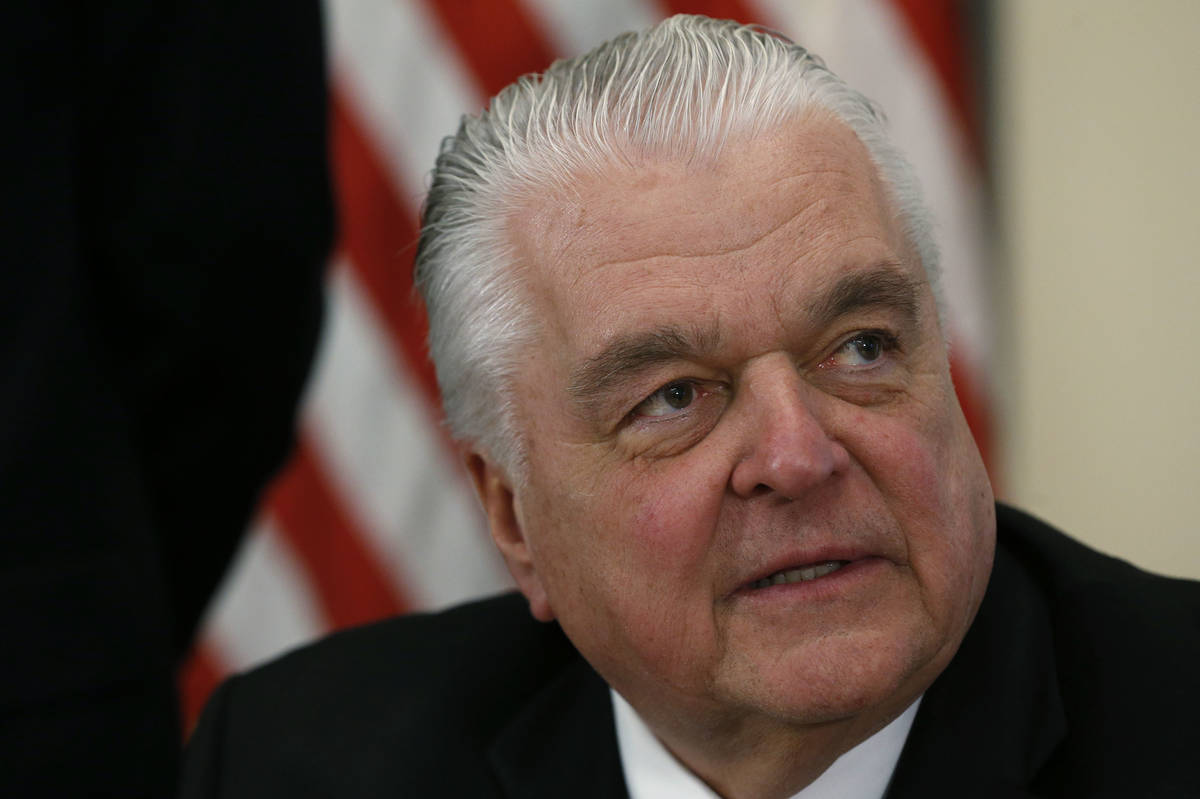VICTOR JOECKS: Last year’s spending spree set up special session budget cuts
If Gov. Steve Sisolak hadn’t blown out the budget last year, there wouldn’t be a need to reduce spending at this week’s special session.
On Wednesday, lawmakers will gather in Carson City to address the budget hole caused by the coronavirus shutdown. Usually when government officials talk about cuts, they’re actually complaining about smaller-than-desired increases. Not this time. Absent tax increases or gimmicks, Nevada’s budget is going to see a year-over-year decrease.
Last year, politicians committed Nevada to spending $6.9 billion in fiscal 2021, which runs from July 1 to June 30. General fund spending was $4.6 billion. Through revenues inside the Distributive School Account, the state directed an additional $2.3 billion to education. Nevada is facing a total shortfall of $1.2 billion, or 17.4 percent.
That sounds bad, but consider the context. Sisolak and legislative Democrats blew out the state budget last session. Nevada has a two-year budget cycle. For fiscal 2020-21, they passed $13.6 billion in spending. That includes money that goes directly to education without passing through the general fund. That was $1.4 billion more than Nevada spent in fiscal 2018-19. That biennium’s total budgeted spending was $12.2 billion.
Even that budget, passed by Democratic majorities and signed by then-Gov. Brian Sandoval, was bloated. In fiscal 2016-17, Nevada’s spending was $11 billion. Sandoval pushed through the largest tax hike in state history that session. In fiscal 2014-15, Nevada’s spending was $9.9 billion. Over the course of three budget cycles, Nevada’s spending jumped 37 percent.
The budget Democrats passed last year wasn’t viable in the long-term — even before coronavirus. Nevada has a boom-and-bust economy. When times are good, tax revenues soar, especially after the 2015 tax hikes. The flip side is that downturns are especially painful. That shouldn’t be hard to remember because the state experienced that a little more than a decade ago during the 2008 economic crash.
Assuming a $1.2 billion reduction, Nevada will end up spending $5.7 billion this year. That would be more than what the state spent in fiscal 2017.
Compared to the private sector, that’s a dream scenario. In May, Nevada’s unemployment rate was more than 25 percent.
Responsible budgeting calls for two things. Limit spending increases to sustainable levels and save for a rainy day. Sisolak and Democrats ignored the first principle by passing a record budget. If they had held Nevada’s spending steady at $12.2 billion, they’d have saved $1.4 billion — more than the amount by which they now need to cut.
Democrats did allocate 1 percent to Nevada’s Rainy Day Fund. That’s better than nothing, but not by much. It was such a minuscule amount that Nevada’s emergency fund didn’t even fully cover the budget deficit for the fiscal year that ended June 30.
Democrats couldn’t have predicted what the coronavirus and Sisolak’s shutdown orders would do to Nevada’s economy. But even a run-of-the-mill recession would have left Nevada hurting.
The budget Sisolak and Democrats passed last year was always unsustainable. What the coronavirus has done is show exactly how irresponsible it was.
Victor Joecks’ column appears in the Opinion section each Sunday, Wednesday and Friday. Listen to him discuss his columns each Monday at 3 p.m. with Kevin Wall on AM 670 KMZQ Right Talk. Contact him at vjoecks@reviewjournal.com or 702-383-4698. Follow @victorjoecks on Twitter.























